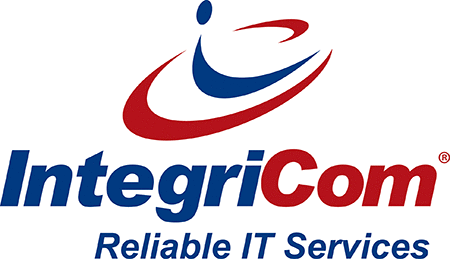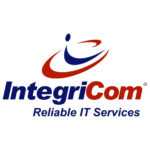When businesses seek to enhance their IT operations, they often face the decision of choosing between managed services and outsourcing. While both aim to improve efficiency, managed services focus on long-term, proactive IT management, integrating deeply with your business. In contrast, outsourcing handles specific tasks on a short-term basis through external providers. This blog post breaks down the differences, benefits, and decision factors of managed services vs outsourcing: what is the difference, to help you make an informed choice.
Key Takeaways
- Managed services focus on proactive, long-term IT management, enhancing operational efficiency and integrating closely with business strategies, while outsourcing mainly addresses specific tasks with a reactive approach.
- The choice between managed services and outsourcing should align with business objectives, considering factors such as control, cost, and long-term strategic goals to optimize operations.
- Managed services offer predictable costs and robust cybersecurity, whereas outsourcing provides access to specialized expertise and immediate cost savings, each having unique impacts on business operations.
Defining Managed Services
Managed services refer to the proactive management of IT infrastructure and operations. Managed services providers (MSPs) take on the responsibility of maintaining and improving a company’s IT environment, focusing on long-term efficiency and performance. This model is characterized by ongoing management, structured Service Level Agreements (SLAs), and a proactive approach to identifying and resolving issues before they escalate.
A managed services provider works closely with their clients to foster collaborative, long-term partnerships. This relationship allows businesses to anticipate potential IT challenges and address them proactively, rather than merely reacting to problems as they arise. Integration with the client’s business model allows managed services providers to enhance IT efficiency and effectiveness, aligning technology with the organization’s broader strategic goals.
The managed services model offers businesses a holistic approach to IT management, allowing them to focus on their core competencies while the MSP handles the complexities of IT infrastructure. This approach not only improves operational efficiency but also provides predictable costs and robust cybersecurity measures, making managed services a valuable option for businesses looking to optimize their IT operations.
Understanding Outsourcing
Outsourcing involves hiring external resources to perform specific tasks or functions that are typically handled in-house. This business model has gained popularity due to its potential for cost savings, access to specialized expertise, and the ability to focus on core business activities. Advances in technology and globalization have made it viable for many organizations to outsource, looking to improve efficiency and address specific business problems.
However, traditional outsourcing comes with its limitations. One of the primary challenges is the lack of control over work completion and the scope of the project. Outsourcing often involves a hands-off approach, where the external provider delivers work for a fixed fee with minimal involvement from the client. This can lead to higher costs, less control, and poor integration with the company’s existing systems and processes.
Despite these challenges, outsourcing remains an attractive option for businesses seeking external assistance to manage specific tasks or projects. By understanding the terms and carefully selecting the right outsourcing provider, organizations can leverage the benefits of outsourcing, thereby enhancing business operations and achieving their strategic goals.
Key Differences Between Managed Services and Outsourcing
While both managed services and outsourcing aim to enhance operational efficiency through external expertise, their approaches differ significantly. Managed services focus on comprehensive, long-term IT management, whereas outsourcing often addresses specific tasks for limited durations. In the discussion of managed services vs outsourcing, it’s clear that each has its unique advantages.
These differences impact the relationship dynamics, control, and system integration of services within a business.
Proactive vs Reactive Approach
Managed services adopt a proactive approach, continuously improving and preventing issues before they arise. This holistic approach ensures that the current infrastructure and IT infrastructure remain efficient and secure.
In contrast, outsourcing typically involves a reactive approach, addressing problems as they occur but not necessarily preventing them from happening in the first place.
Long-Term Partnerships vs Short-Term Projects
Managed services are characterized by long-term engagements that integrate deeply into the business model, fostering collaborative relationships. This contrasts with traditional outsourcing, which often involves short-term projects with fixed timelines and deliverables.
The long-term nature of managed services allows for more consistent performance and alignment with strategic business goals.
Control and Integration
Managed services provide businesses with more control over quality and productivity, thanks to the involvement of internal teams, in-house staff, and clearly defined SLAs. This approach also facilitates better integration of IT systems, enhancing efficiency and productivity.
In contrast, outsourcing can lead to a loss of oversight and less effective integration due to the transactional nature of the relationship.
Benefits of Managed Services
Managed services offer numerous benefits, making them an attractive option for businesses looking to optimize their IT operations. These benefits include enhanced operational efficiency, predictable costs, and robust cybersecurity measures. Partnering with a managed services provider allows businesses to streamline IT processes, reduce costs, and maintain a secure and efficient IT environment.
Benefits of Outsourcing
Outsourcing offers several benefits, including cost savings, access to specialized expertise, and the ability to focus on core business activities. Leveraging external resources helps businesses reduce operational costs, enhance project quality, and redirect internal resources towards strategic priorities.
These benefits make outsourcing a cost-effective option for many organizations.
Access to Specialized Expertise
One of the primary benefits of outsourcing is access to specialized expertise. Outsourcing firms provide niche skills that enhance business performance in specific areas, allowing organizations to fill service gaps and improve project quality.
Evaluating the outsourcing provider’s track record and expertise is crucial to ensure they can meet the organization’s needs effectively.
Choosing the Right Approach for Your Business
Choosing between managed services and outsourcing depends on your business’s unique needs and resources. This decision should align with your long-term strategic goals and digital transformation initiatives.
Carefully assessing business requirements, evaluating cost factors, and considering strategic objectives enables you to make an informed decision supporting your organization’s growth and business success.
Assessing Business Requirements
To choose the right approach, businesses must assess their core competencies and identify areas where external support is needed. Managed services provide an in-house team that integrates into your operations, offering specific services, additional services, consistent performance, and support.
Evaluating potential providers’ past performance and expertise is essential to ensure they can meet your business needs effectively.
Evaluating Cost Factors
Cost is a critical factor when choosing between managed services and outsourcing. Managed services often come with predictable monthly costs, aiding in budgeting and financial planning. However, this predictability can sometimes lead to higher overall costs compared to outsourcing.
Balancing cost considerations with the benefits of each approach is crucial for making the right decision.
Long-Term Strategic Goals
Aligning your service decisions with long-term strategic goals ensures that your business is well-positioned for future challenges and opportunities. Managed services support ongoing digital transformation efforts and help align IT operations with future growth initiatives.
Focusing on core competencies and strategic initiatives ensures that the IT strategy supports overall business goals through a strategic approach.
Impact on Business Operations
Managed services significantly impact business operations and business processes. Additionally, outsourcing also has a notable effect on how businesses operate. They enhance flexibility, scalability, and efficiency, allowing businesses to focus on their core activities while external providers manage IT functions.
Understanding these impacts can help businesses choose the right approach to optimize their operations and drive growth.
Operational Flexibility
Managed services provide more control over IT operations, allowing businesses to streamline narrowly defined business processes and improve productivity. This flexibility is crucial for adapting to changing business requirements and focusing on core competencies.
Traditional outsourcing also offers operational flexibility by enabling businesses to adjust quickly to market demands, but it often requires less direct interaction compared to managed services. Utilizing managed services or outsourcing and managed services can help businesses maintain operational efficiency without compromising performance.
Scalability
The scalability of managed services allows organizations to adjust their IT resources according to their needs, providing ongoing support and access to specialized skills. This flexibility is essential for scaling operations in response to market demands and technological advancements.
Outsourcing also offers scalability by enabling organizations to quickly scale resources for specific IT projects. Both managed services and outsourcing provide unique advantages for scalability, aligning resources with dynamic business needs without compromising performance.
Finding the Right Service Provider
Selecting the right service provider is crucial for aligning with your business needs and maximizing operational efficiency. Whether choosing a managed service provider (MSP) or an outsourcing provider, careful evaluation of their experience, services offered, and customer feedback is essential.
This section will guide you through the criteria for selecting MSPs and outsourcing providers, ensuring you find the right partner to support your business operations.
Criteria for Selecting MSPs
When selecting a managed service provider, businesses should consider multiple criteria. A reputable MSP should demonstrate a deep understanding of specific industry requirements and have a solid track record of effective communication and relationship management.
Evaluating the provider’s technical expertise and reputation is critical to ensuring they can meet your business needs. By carefully considering these factors, you can choose an MSP that aligns with your operational requirements and goals, fostering a successful long-term partnership.
Criteria for Selecting Outsourcing Providers
When evaluating outsourcing providers, it’s important to assess their experience, capabilities, and ability to manage partnerships effectively. Ensuring the right level of support aligns with the specific scope of your business needs is crucial for successful project execution and operational efficiency.
Thorough evaluations of potential outsourcing providers, including their track record and expertise, will lead to improved partnerships and enhanced service delivery across your organization as you work closely with a third-party provider.
Real-World Examples
Real-world examples of managed services and outsourcing illustrate their practical benefits and applications. For instance, a company utilizing managed services for its ERP system can receive continuous assessment and feature enhancements, improving user adoption and operational efficiency over time. Unlike outsourcing, managed service providers often propose long-term transformational solutions, such as leveraging AI to optimize supply chains.
These examples demonstrate how managed services can shift IT operations from a significant expense to a source of savings, while outsourcing addresses specific business needs effectively.
Final Thoughts on The Difference Between Managed Services and Outsourcing
Both managed services and outsourcing offer unique benefits that can enhance a company’s IT operations. Managed services provide a proactive, long-term approach with predictable costs and robust cybersecurity, while outsourcing offers cost savings, access to specialized expertise, and the ability to focus on core competencies. By carefully assessing your business requirements, evaluating cost factors, and aligning with long-term strategic goals, you can choose the approach that best supports your organization’s growth and success.
At IntegriCom, we are dedicated to delivering technology solutions that align with our core values: selfless for our clients and each other, relentless at improving, professional unassuming confidence, and joyfully doing the right thing, regardless. We invite you to explore how our managed services & outsourced IT department in Atlanta can help your business succeed.
Frequently Asked Questions
What are the main differences between managed services and outsourcing?
The primary differences between managed services and outsourcing lie in their approach and scope; managed services provide ongoing, proactive IT management, while outsourcing typically addresses specific tasks for a limited time frame. Thus, managed services offer more comprehensive support compared to the transactional nature of outsourcing.
How do managed services enhance operational efficiency?
Managed services enhance operational efficiency by integrating IT support into the business model, enabling ongoing assistance and consistent performance. This allows businesses to concentrate on their core competencies, ultimately driving productivity and growth.
What are the cost benefits of outsourcing?
Outsourcing offers significant cost benefits by utilizing global talent and expertise, streamlining operations, and providing access to a flexible workforce, which allows businesses to adapt quickly to changing demands. This strategic approach not only reduces expenses but also enhances operational efficiency.
How can I choose the right service provider for my business?
To choose the right service provider, focus on their experience, technical expertise, reputation, and communication skills. Ensuring they align with your business needs is essential for establishing a successful partnership.
What cybersecurity benefits do managed services offer?
Managed services enhance cybersecurity by offering proactive network monitoring, advanced threat detection, and rapid incident response, thereby ensuring a secure IT environment.


